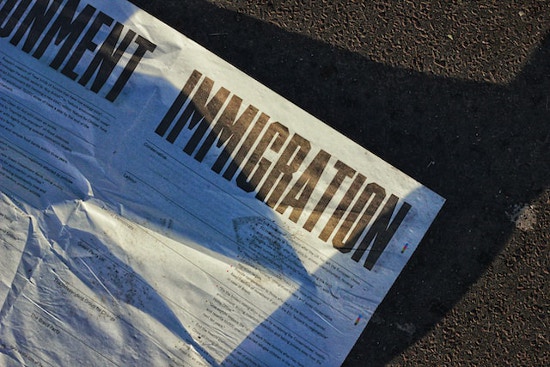For immigrants, the deportation process is a very difficult and sometimes upsetting affair. People have legal rights, both domestically and internationally, that provide them with special safeguards against deportation, guaranteeing their rights are upheld. Understanding these protections—which will be covered below—is crucial for immigrants, their families, and campaigners working for justice in the face of deportation threats. These include anything from legal counsel to international accords.


Legal Representation: The Cornerstone of Immigrant Defense
The right to legal counsel is one of the main defenses against deportation for immigrants. Having legal representation is essential for navigating the intricate immigration procedure. Immigrants have the right to retain legal counsel in many nations, and if they are unable to pay for one, they may be assigned a pro bono attorney. Building a solid defense, making sure immigrants understand their rights, skillfully presenting their case, and promoting due process are all important tasks performed by legal counsel. Attorneys evaluate whether the deportation order is lawful, look into possible relief options, and contest the case in immigration courts. Legal professionals also help in obtaining evidence, submitting appeals, and defending immigrants in court, increasing their chances of stopping or postponing the deportation procedure.
Humanitarian Protections: Asylum, Withholding of Removal, and Convention Against Torture
Protecting immigrants against deportation requires humanitarian considerations, particularly for individuals who are escaping torture, violence, or persecution in their own countries. A person who fears persecution because of their race, religion, nationality, political beliefs, or membership in a certain social group may apply for asylum, a kind of international protection. Immigrants must prove they have a legitimate fear of persecution and have no safe third nation to return to in order to be granted asylum. They can also opt for US immigration bonds if they are at risk of deportation. Another kind of protection called withholding of removal keeps an immigrant from being deported if they can demonstrate a strong likelihood of being persecuted if they return. People who are likely to be tortured if they return to their native country are protected under the Convention Against Torture (CAT).
Temporary Protected Status (TPS) and Deferred Action: Temporarily Shielding Immigrants
Deferred Action for Childhood Arrivals (DACA) and Temporary Protected Status (TPS) are two important safeguards that temporarily prevent certain immigrants from being deported. People from certain nations who have experienced armed conflict, natural catastrophes, or other extreme circumstances are awarded Temporary Protected Status (TPS), which permits them to remain and legally work in the host nation. Temporary protection from deportation and the chance to support the economy of the host country are two benefits of TPS, despite the fact that it does not provide a straight route to citizenship or permanent residence. DACA, which was implemented in the US, offers protection to unauthorized immigrants who entered the country as minors. It provides beneficiaries, sometimes known as Dreamers, with a reprieve from deportation, enabling them to work lawfully and pursue their educational goals.
International Agreements: The Role of Refugee Status and Non-refoulement
International accords are important for the protection of immigrants who are about to be deported. The status, rights, and safeguards of refugees are outlined in the 1951 Refugee Convention and its 1967 Protocol. These accords identify people as refugees who cannot be forcefully returned to their home countries and who are fleeing persecution or a well-founded fear of persecution. A key component of refugee protection is the non-refoulement principle, which guarantees that immigrants are not sent back to nations where they pose a substantial risk to their safety or freedom. International collaboration and adherence to these accords highlight how states must work together to safeguard vulnerable people and maintain fundamental human rights.
Advocacy and Support Organizations: Strengthening Immigrant Voices
In the face of deportation, community-based organizations and non-governmental organizations (NGOs) often provide advocacy and assistance to immigrants. These groups are essential in bringing attention to deportation-related concerns, offering legal support, and pushing for legislative changes. They enable immigrants and their families to successfully negotiate the legal difficulties of deportation procedures by providing them with information, direction, and emotional support. In order to oppose unfair deportation laws, advance access to legal counsel, and advance reasonable immigration procedures, advocacy organizations often cooperate with legislators, legal professionals, and foreign organizations. By amplifying immigrant voices, their efforts help create a more humane and inclusive immigration system.
Conclusion
A number of legislative protections, humanitarian clauses, international agreements, lobbying initiatives, and cultural awareness shield immigrants against deportation. Nations may establish a more equitable and humane immigration system that guarantees the dignity and well-being of every person, irrespective of their place of birth, by maintaining these rights and encouraging a more knowledgeable and caring society.









